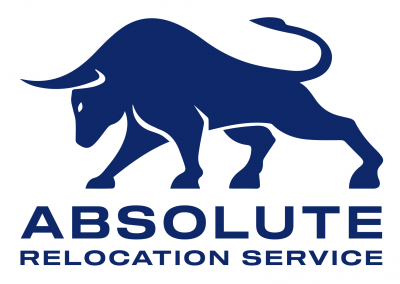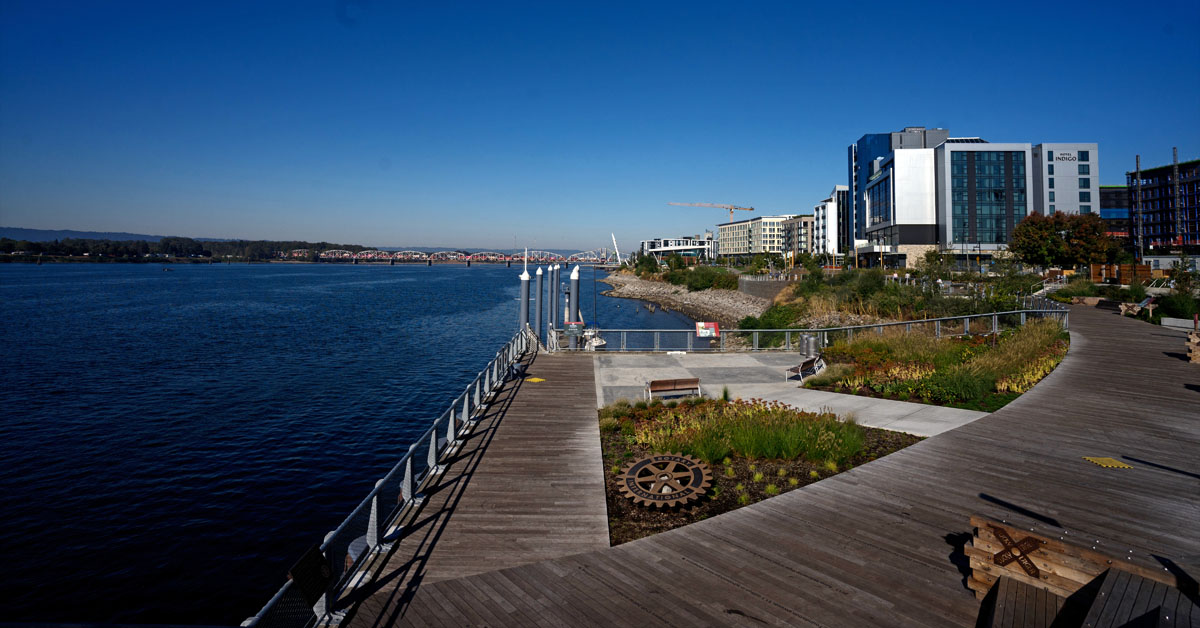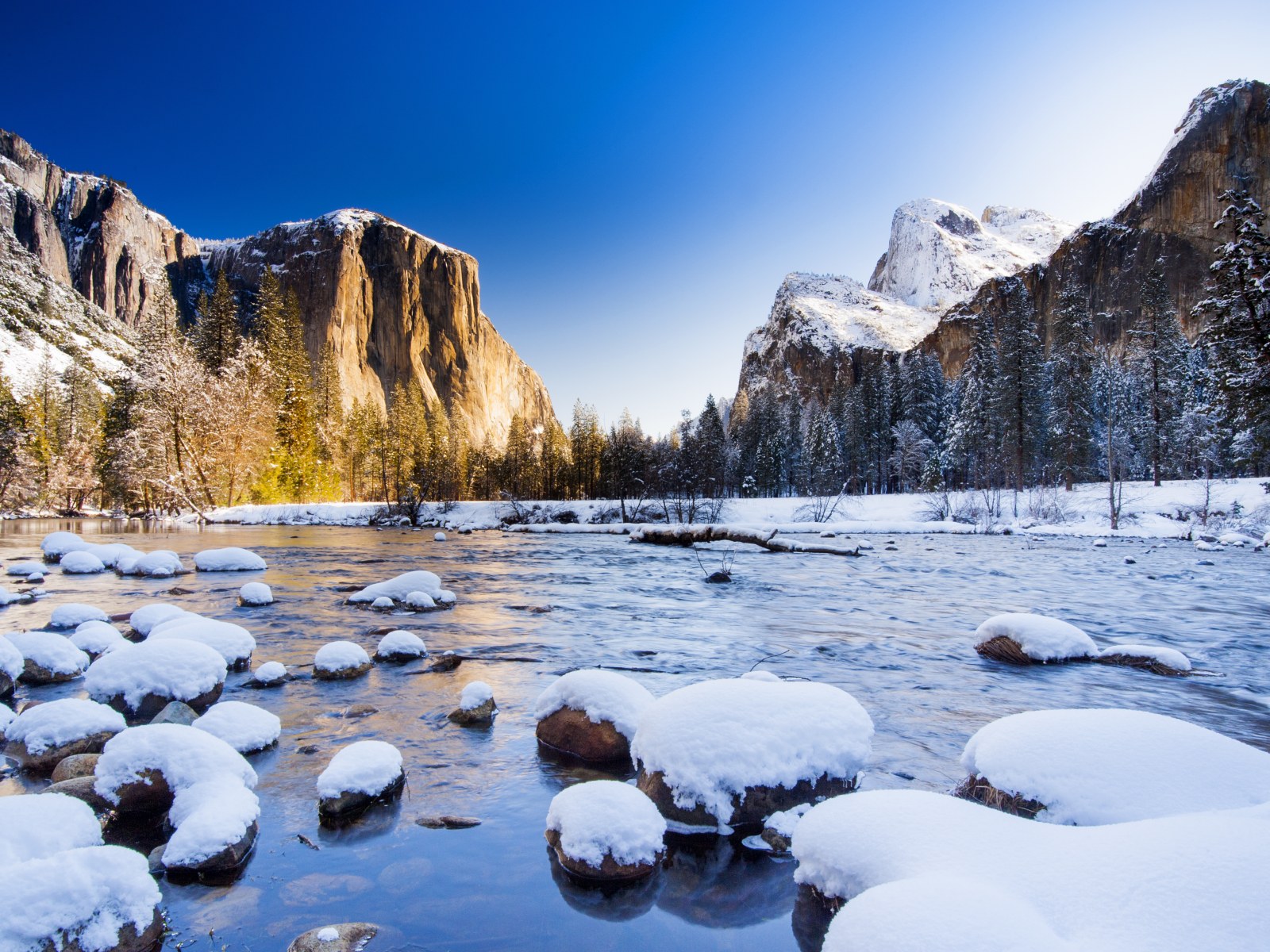Moving to Vancouver, Washington: What you need to know about the city and its neighborhoods
Washington State is famous for its great living conditions: magnificent natural landscapes, from mountains to the ocean, comfortable climate, developed infrastructure and high standard of living. There are many cities in this state, each of which has its own uniqueness and appeal. One of such cities is Vancouver, located in the southwest of the state, near the border with Oregon.
Living in Vancouver, WA
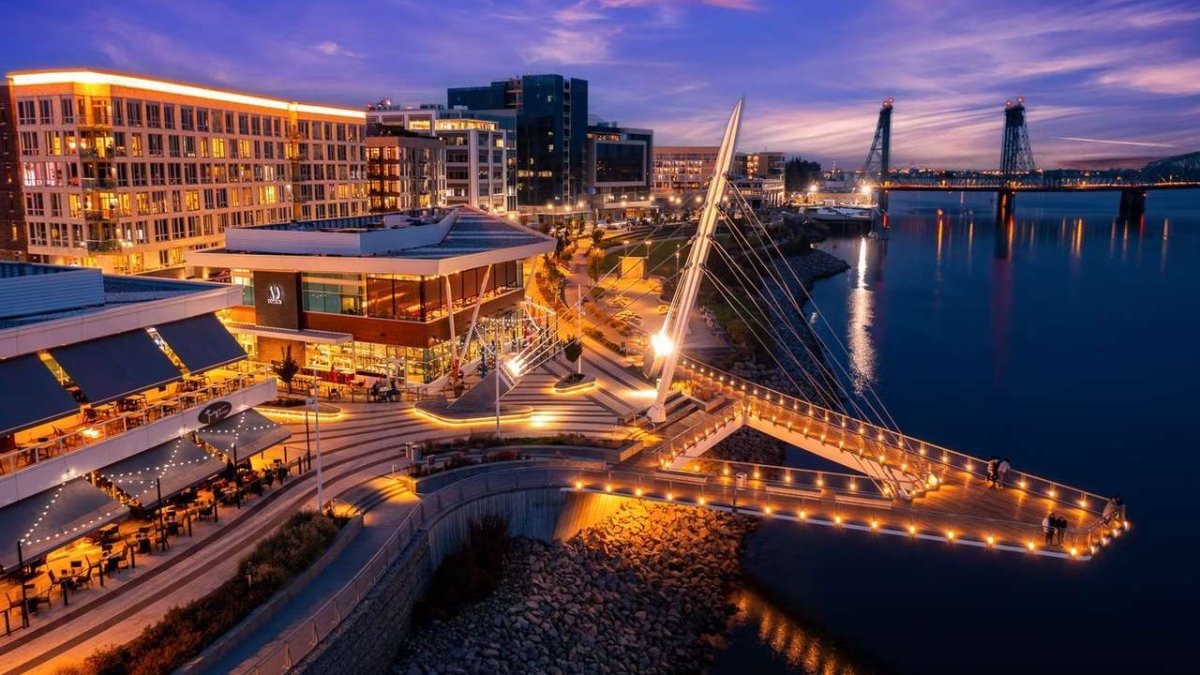
Vancouver is a city of about 190,000 people that offers a high quality of life and plenty of opportunities for work and recreation. Its location near Portland, Oregon, makes it especially convenient for those who want to live in a quieter city but with easy access to a major metropolitan area. Vancouver is also attractive to families with children due to its good schools and many parks.
The city has a developed infrastructure and plenty of entertainment. In the city center you can find cozy restaurants, cafes, stores and cultural institutions. Vancouver is known for its festivals, cultural events and various sporting events. There are also many parks and open spaces for outdoor activities including walking, picnicking and playing sports.
Vancouver attracts many with its amenities, location near Portland, and relatively more affordable cost of living compared to larger cities. This city is a good choice for families, young professionals, and retirees, offering a wide range of opportunities to live comfortably. However, when planning a move to Vancouver, it is important to consider average incomes, cost of living, and housing prices.
Average income in Vancouver
The median income in Vancouver varies by occupation and skill level. Based on recent years’ data, the median annual household income in Vancouver is around $70,000 – $75,000. This is slightly higher than the U.S. median income due to high wages in sectors such as technology, education, health care and retail.
For self-employed workers, the median income is around $40,000 – $45,000 per year. Salaries can vary greatly depending on the profession. For example, IT professionals can earn significantly more, while service workers can earn below average.
Cost of living in Vancouver
The cost of living in Vancouver is generally lower than neighboring Portland, but higher than the national average. Here are the major cost categories:
- Housing: Housing is a major expense for most residents. The average rent for a one-bedroom apartment is about $1,500 to $1,800 per month. Renting a one-bedroom apartment will cost about $1,900 – $2,200 per month.
- Food: Food prices in Vancouver are slightly lower than in other major cities. On average, grocery shopping for a single family can cost about $400 to $600 per month.
- Transportation: Vancouver has a well-developed public transportation system, including bus routes and proximity to Portland’s transportation system. Gasoline and car maintenance costs should also be considered when planning your budget.
- Utilities: Average costs for utilities such as electricity, water, heating, and internet can run around $200 to $300 per month for a standard household.
- Health Care: Health care is an important expense and the cost of health care services can vary depending on the insurance plan. Health care costs in Vancouver are comparable to the overall costs across the country.
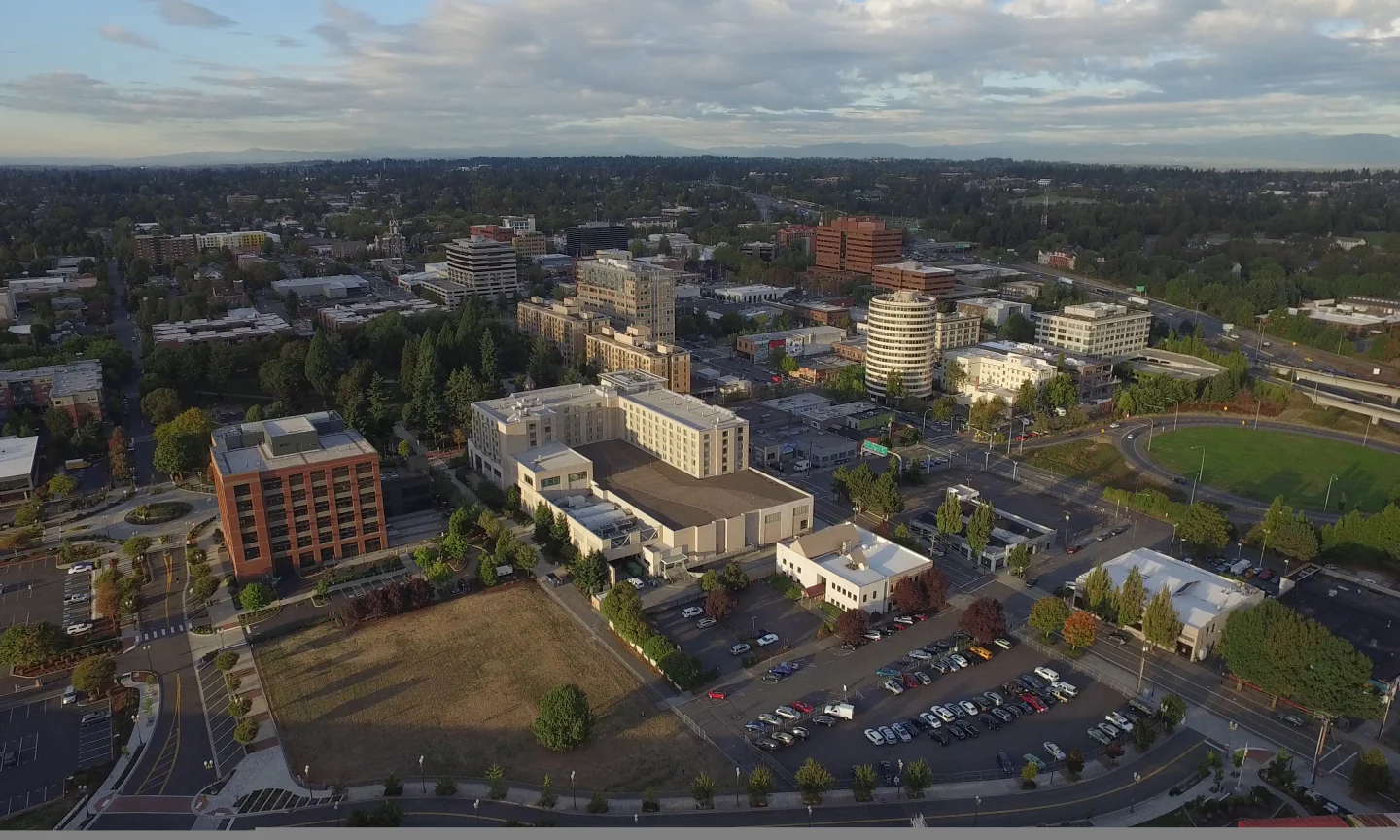
Housing costs in Vancouver
The real estate market in Vancouver remains dynamic. The cost of buying a home has increased in recent years, as it has in most cities in the United States. The average cost of a home in Vancouver is around $500,000 to $550,000, depending on the neighborhood and property type.
That said, home prices can vary considerably. For example, in central neighborhoods and suburbs with good schools, home values can be higher than average. However, more affordable options can be found in more remote areas of the city.
- Condos/Apartments: Condos range from $300,000 to $450,000, depending on the location and size of the home.
- Homes: For family homes, costs start at $400,000 and can exceed $800,000 depending on square footage and location.
Attractions and Amenities
One of the key historical sites in Vancouver is the Fort Vancouver National Historic Site. This is a place where you can immerse yourself in the history of the region and learn more about the early settlements in the northwestern United States. In addition to the fort, the city is also home to scenic parks such as Esther Short Park and the Waterfront Renaissance Trail, which offers amazing views of the Columbia River.
For outdoor enthusiasts, Vancouver has plenty to offer. Vancouver Lake Park and Wintler Park provide great places for picnics, nature walks, fishing and swimming. Water sports such as kayaking and canoeing are also available here.
Vancouver’s neighborhoods and suburbs
Vancouver is made up of several neighborhoods and suburbs, each with its own characteristics and advantages:
1. Downtown Vancouver: The Heart of the City
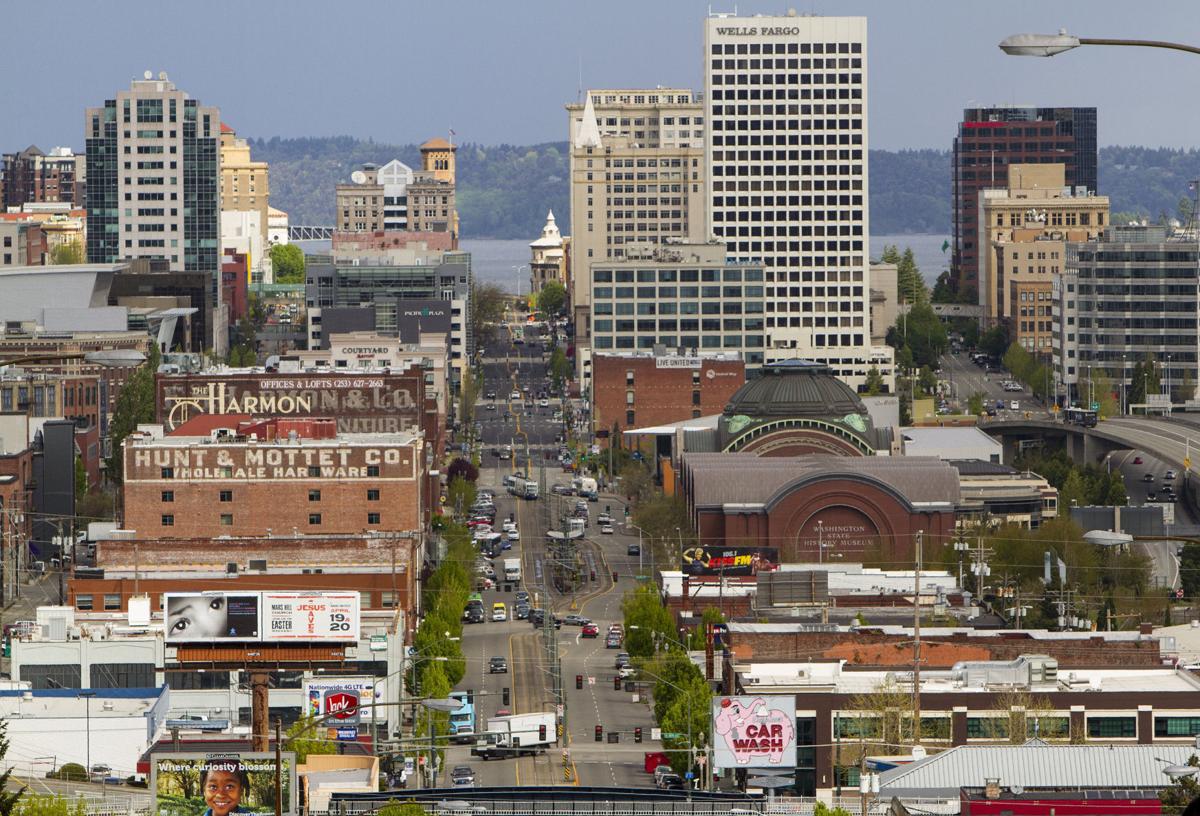
Downtown Vancouver is a vibrant downtown area of Vancouver, WA that combines history, culture, shopping and entertainment. This neighborhood offers an ideal environment to live, work and play, thanks to its developed infrastructure, numerous restaurants, stores and parks. Walkable streets, proximity to the waterfront and a variety of cultural activities make Downtown Vancouver an attractive place to live and visit.
Key Features of Downtown Vancouver
- Historic Heritage: There are several historic sites located in the downtown area, such as Fort Vancouver National Historic Site and Officers Row. These sites reflect the rich history of the region and are popular tourist hotspots.
- Amenities and infrastructure: Downtown Vancouver is home to a variety of restaurants, cafes, bars, and boutiques. A variety of stores are available to residents, offering both basic necessities and unique local products. The area is also home to office buildings and business centers, making it the business center of the city.
- Cultural Activities: Downtown Vancouver is known for its festivals and cultural events such as the Vancouver Farmers Market, outdoor concerts and various street fairs. Regular events bring residents and visitors together, creating an atmosphere of unity and creativity.
- Waterfront: The Waterfront Renaissance Trail is a beautiful waterfront that attracts outdoor enthusiasts. Here you can walk, run, bike, or just enjoy the views of the Columbia River. This place is popular with residents and tourists alike, especially during the summer months.
- Parks and Green Spaces: There are several parks in the downtown area, such as Esther Short Park, which is the oldest public park in Washington State. It hosts concerts, festivals, and other outdoor events.
Living in Downtown Vancouver
Downtown Vancouver residents enjoy living in a convenient urban neighborhood with an active social life. From modern apartments to historic homes, it’s easy to find housing in this neighborhood. Living downtown allows you to be within walking distance of major amenities and cultural venues.
For families, Downtown Vancouver offers excellent schools and parks for children. Young professionals will find amenities for work and play, while seniors can enjoy quiet walks along the waterfront and cozy cafes.
Transportation and Accessibility
Downtown Vancouver is well connected to other parts of the city and Portland, Oregon. The I-5 and I-205 bridges provide quick access to Portland, making Downtown Vancouver an ideal choice for those who work in Portland but prefer to live in the quieter environment of Vancouver.
Downtown Vancouver is a vibrant and cozy neighborhood, perfect for those who want to combine an urban lifestyle with the natural beauty of the region.
2. Fisher’s Landing East: A modern and convenient neighborhood to live in
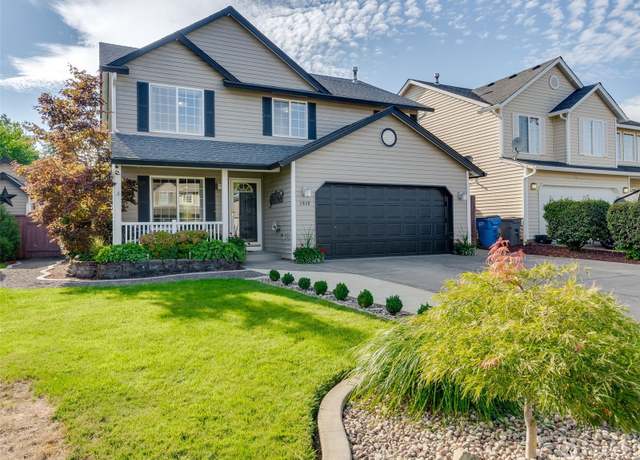
Fisher’s Landing East is a popular residential neighborhood on the eastside of Vancouver. This suburb combines a convenient location, quality amenities, and a family-friendly atmosphere. With its proximity to major highways, strong infrastructure and many amenities, Fisher’s Landing East is attractive to families with children and young professionals alike.
Key features of Fisher’s Landing East
- Developed infrastructure: The neighborhood is known for its convenient location near major shopping centers such as Columbia Tech Center and Fisher’s Landing Marketplace, where you can find a variety of stores, restaurants, cafes and entertainment venues. There are also supermarkets, medical facilities and fitness centers, making living in the area as convenient as possible.
- Housing: Fisher’s Landing East offers a variety of housing options from modern apartments and townhouses to spacious family homes. Housing here is characterized by high quality construction and landscaped streets. The neighborhood is known for its tranquility, safety and cleanliness, which attracts families and those looking for a quiet and comfortable place to live.
- Education: The neighborhood is home to several highly rated schools, making it especially attractive to families with children. Educational institutions include Fishers Landing Elementary School, Shahala Middle School, and Mountain View High School, which are part of the Evergreen Public Schools system. These schools offer an excellent education and a variety of after-school programs for children of all ages.
- Parks and Outdoor Activities: Fisher’s Landing East is surrounded by green spaces and parks, making it an ideal location for outdoor enthusiasts. The neighborhood is home to parks such as Pacific Community Park and Leroy Haagen Memorial Park, where you can walk, play sports, and enjoy nature. There are also walking and biking paths that are popular with locals.
- Transportation Accessibility: Fisher’s Landing East is conveniently connected to other parts of Vancouver and Portland, Oregon. Through nearby highways I-205 and SR-14, you can quickly access downtown Portland and other key points in the region. The area is also home to a major transportation hub, Fisher’s Landing Transit Center, which provides buses to a variety of Life at
Fisher’s Landing East
This neighborhood has a friendly and safe atmosphere, making it an attractive place to live for families, seniors, and professionals. Residents enjoy all the amenities of an urban neighborhood while remaining surrounded by nature and greenery. Proximity to the Columbia and Willamette Rivers also adds to the neighborhood’s appeal for water sports and water enthusiasts.
Fisher’s Landing East is a neighborhood where you can live an active and comfortable lifestyle while enjoying all the benefits of living in a modern and developed suburb.
destinations, including Portland.
3. Cascade Highlands: A cozy residential neighborhood with amenities and nature
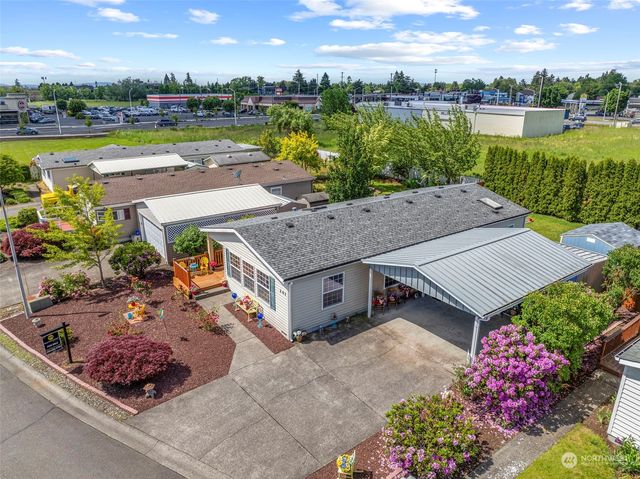
Cascade Highlands is a residential neighborhood located on the east side of Vancouver, Washington. It is a quiet and cozy suburb that attracts families, retirees, and those looking for tranquility away from the hustle and bustle of big cities. The neighborhood offers a great combination of natural beauty, good schools, amenities, and affordable housing.
Key Features of Cascade Highlands
- Housing: Cascade Highlands is known for its spacious family homes with large yards and green streets. The neighborhood is dominated by single-family homes with well-maintained lots, making it attractive to families with children and those who prefer a more secluded lifestyle. Most homes here were built in the 1980s and 1990s, but have been well maintained and modernized.
- Education: Cascade Highlands has access to quality schools that are part of the Evergreen Public Schools system. Popular schools in the area include Cascade Middle School and Mountain View High School. These schools are known for their high level of education and diverse extracurricular programs, making the area attractive to families with children.
- Parks and Recreation: Residents of Cascade Highlands can enjoy nature and outdoor activities thanks to its proximity to parks and green spaces. The neighborhood is home to several small parks and recreational fields, and nearby Leroy Haagen Memorial Park offers picnic areas, athletic fields, and play areas for children.
- Quiet and Safe: Cascade Highlands is a quiet and safe neighborhood where many residents value peace and privacy. There is no heavy traffic, making the neighborhood streets quiet and safe for walking and children’s play. The neighborhood is also known for its friendly and close-knit community.
- Proximity to amenities: Despite its tranquility and seclusion, Cascade Highlands is in convenient proximity to all necessary amenities. Major shopping centers, supermarkets, and restaurants are all within a short drive. With good transportation accessibility, residents can easily commute to work and various institutions in Vancouver and neighboring Portland.
- Transportation Accessibility: Cascade Highlands is conveniently connected to key highways such as I-205, allowing for quick access to downtown Vancouver and Portland. The neighborhood also has access to public transportation, making it convenient for those who prefer not to use a personal vehicle.
Life at Cascade Highlands
Life in Cascade Highlands is quiet, safe and cozy. The neighborhood is ideal for those looking for a quiet life away from the hustle and bustle of big cities, but don’t want to give up city amenities. It is a great place for families, seniors and professionals who value quality of life and convenient location.
4. Felida: An attractive neighborhood for families and nature lovers
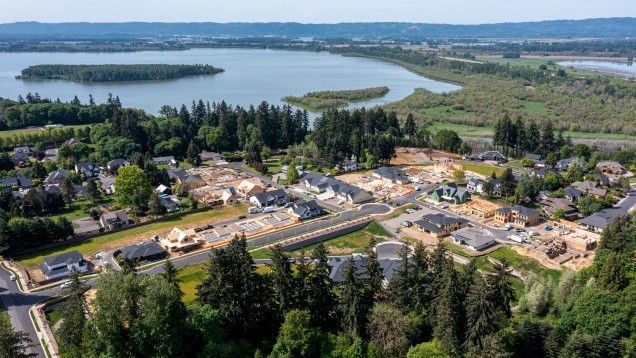
Felida is an upscale and fast-growing neighborhood located on the northwest side of Vancouver. The neighborhood is known for its spacious homes, beautiful natural scenery and peaceful atmosphere, making it popular with families and people who value proximity to nature and comfortable living.
Main features of Felida
- Housing: Felida offers a wide variety of quality housing ranging from modern single-story homes to large family residences. The neighborhood is dominated by single-family homes with spacious lots, beautiful landscaping and gardens. Many homes in Felida were built in the last few decades, so you’ll find both new construction and homes with history but in good condition.
- Education: Felida is an attractive neighborhood for families with children due to its access to high standards of education. The neighborhood is served by schools that are part of the Vancouver Public Schools system. One of the key schools in the neighborhood is Felida Elementary School, which has a strong reputation for excellence in teaching and strong support from parents and the community.
- Parks and Nature: Nature is one of Felida’s greatest assets. The neighborhood is home to several major parks, including Felida Community Park, which offers various outdoor recreation areas, sports fields, tennis courts, jogging trails and play areas for children. The neighborhood is also close to Vancouver Lake and the Salmon Creek Greenway Trail, giving residents the opportunity to enjoy water sports, fishing and hiking.
- Community and Safety: Felida is a quiet and friendly neighborhood that attracts both young families and seniors looking for a safe and comfortable place to live. Here, residents actively participate in social activities and maintain social ties, creating a strong community.
- Stores & Amenities: Despite its distance from downtown Vancouver, Felida offers easy access to the amenities you need. Shopping centers, grocery stores, restaurants and cafes are all within a short drive. Residents can easily access major shopping areas as well as downtown Vancouver and Portland.
- Transportation Accessibility: Felida is conveniently located near major highways, allowing residents easy access to neighboring cities. Freeway connections provide quick travel to downtown Vancouver and Portland, as well as other suburbs in the region.
Life in Felida
Life at Felida is characterized by tranquility, safety and convenience. The area offers excellent family-friendly living, providing access to good education, a variety of outdoor activities, and quiet living in a cozy community. Felida residents often spend time outdoors enjoying nature and participating in a variety of community activities.
5. Hazel Dell, Vancouver, WA: A convenient and affordable neighborhood to live in
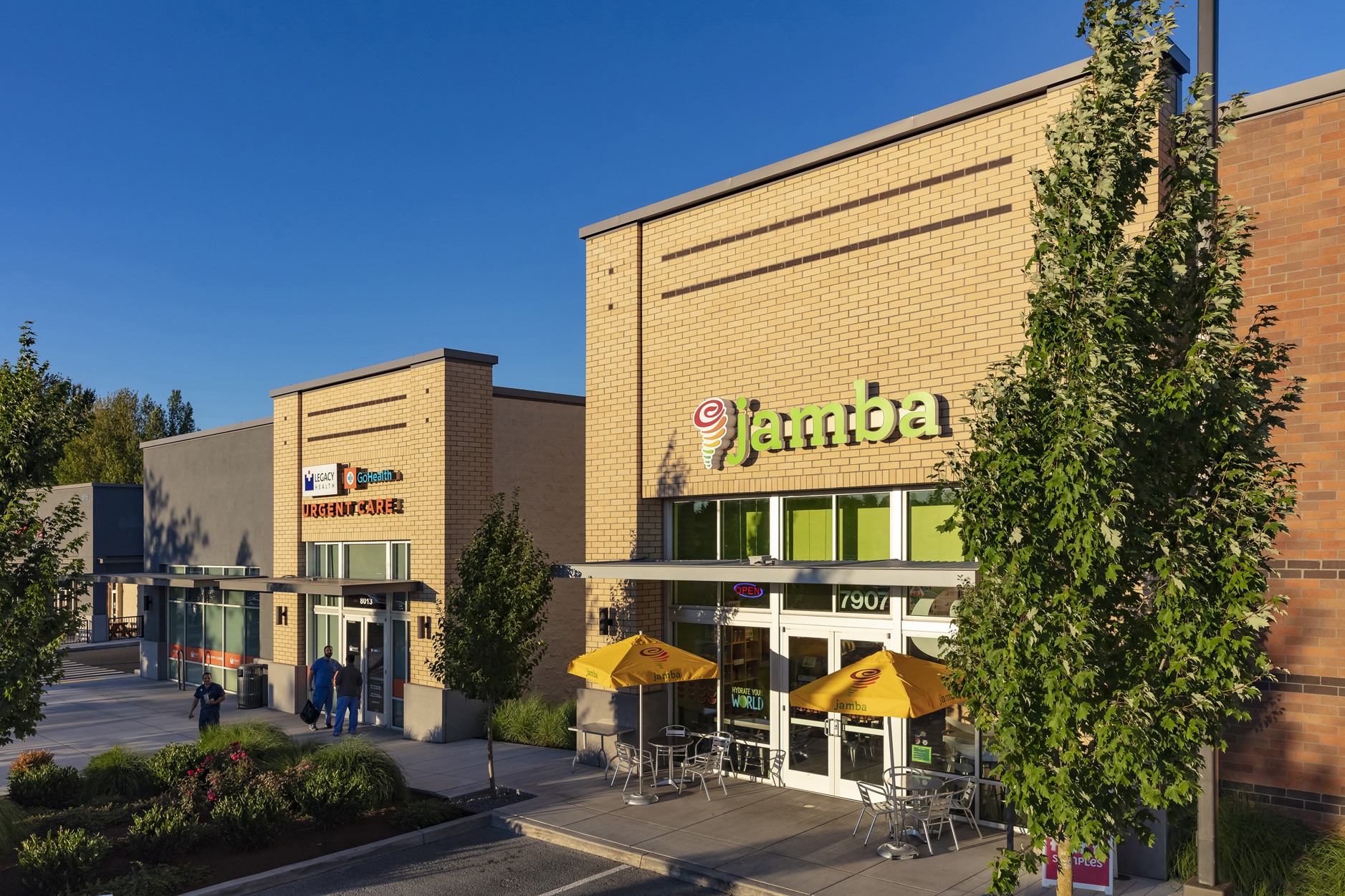
Hazel Dell is a vibrant and livable neighborhood located just north of downtown Vancouver, WA. The neighborhood is known for its housing diversity, strong infrastructure and proximity to major highways, making it attractive to families, young professionals and retirees. Hazel Dell combines the benefits of urban and suburban lifestyles, giving its residents easy access to amenities, schools, and recreational facilities.
Key Features of Hazel Dell
- Housing: Hazel Dell features a variety of residential properties ranging from apartments and townhomes to single-family homes. Modern homes can be found here, as well as more traditional buildings to suit a variety of budgets. This makes the neighborhood accessible to a wide range of people, from young families to retirees. Average home prices in the neighborhood are lower than central Vancouver neighborhoods, attracting those looking for affordable housing in a convenient location.
- Education: The neighborhood is served by schools in the Vancouver Public Schools system, and local schools have a good reputation. Hazel Dell Elementary School, Jason Lee Middle School, and Hudson’s Bay High School are located in the neighborhood. Educational institutions offer a wide range of academic and extracurricular programs, making them popular with families with children.
- Stores and amenities: Hazel Dell is one of Vancouver’s commercial centers and is home to many stores, restaurants, cafes and entertainment venues. The area’s main street, Hazel Dell Avenue, offers a variety of stores, supermarkets and shopping centers such as Hazel Dell Marketplace. It is a convenient place for shopping and leisure activities without having to travel to the city center.
- Restaurants and cafes: Hazel Dell is renowned for its variety of dining establishments. You can find cafes, family restaurants and fast food outlets offering a variety of cuisines. Popular spots among locals include Billygan’s Roadhouse, Elmer’s Restaurant, and Blind Onion Pizza & Pub.
- Parks and Recreation: The neighborhood offers many parks and green spaces for outdoor activities. One popular place for walking and recreation is Hazel Dell Community Park, where picnic areas, children’s play areas, and sports fields can be found. Residents also have access to nearby natural areas such as the Salmon Creek Greenway and Vancouver Lake, which offer great opportunities for hiking, biking, and water sports.
- Community and Safety: Hazel Dell is a friendly and safe neighborhood with developed infrastructure and a strong sense of community. Local residents are actively involved in the community, organizing events and celebrations, which fosters strong ties between neighbors. The neighborhood is also considered safe to live in due to its low crime rate and good law enforcement.
- Transportation Accessibility: Hazel Dell is conveniently located near the I-5 freeway, providing quick access to downtown Vancouver as well as Portland, Oregon. Residents can easily commute to work, school, or other locations in the region. Public transportation is also available in the area, making getting around the city convenient.
Living in Hazel Dell
Living in Hazel Dell offers a convenient balance between urban convenience and suburban tranquility. The neighborhood caters to a diverse range of people, providing affordable housing, amenities, and an active lifestyle. It’s a place where you can find everything you need to live comfortably in Vancouver, whether it’s shopping, schools or recreational facilities.
6. Orchards: A growing and comfortable neighborhood for family living
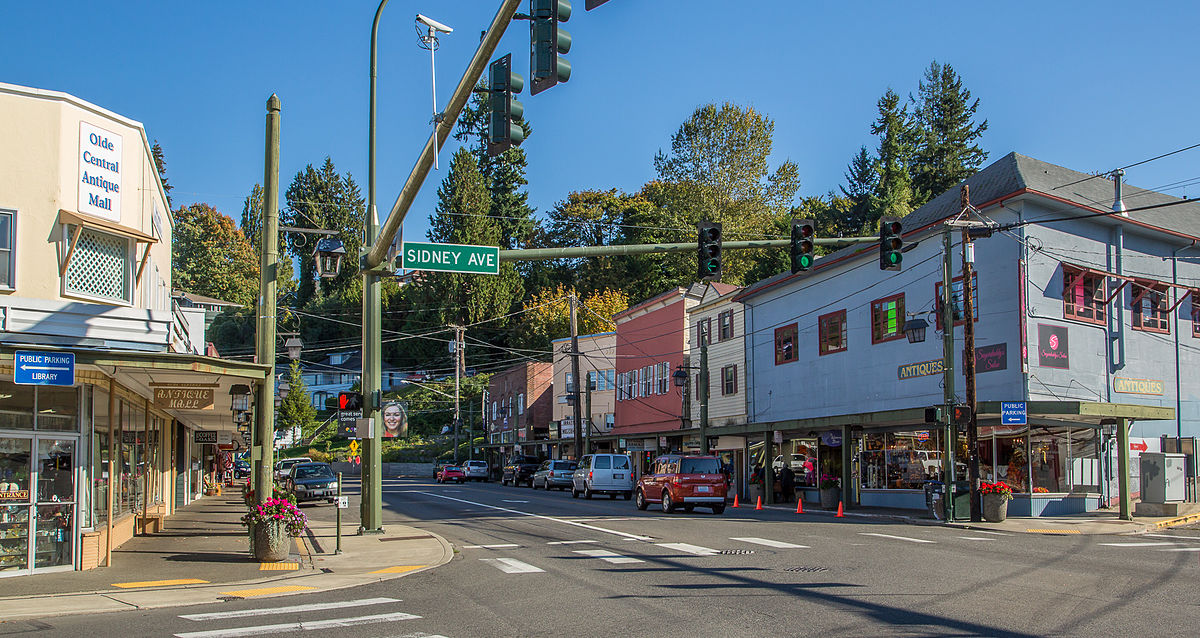
Orchards is a rapidly developing suburban neighborhood in northeast Vancouver. This neighborhood is a popular destination for families and those looking for a quiet yet comfortable living environment. Orchards is known for its variety of residential options, affordable home prices, and convenient location near major highways and amenities.
Key Features of Orchards
- Housing: Orchards offers a variety of housing options, from new modern homes to more traditional buildings. New housing developments are being built in the neighborhood, making it attractive to young families and professionals. The average cost of housing here is lower than central Vancouver neighborhoods, allowing many buyers and renters to find affordable housing in a cozy suburban atmosphere.
- Schools and Education: The neighborhood is served by schools within the Evergreen School District and Battle Ground School District. Orchards has several elementary and middle schools, such as Orchards Elementary School and Heritage High School, that offer quality education and a wide variety of extracurricular activities for children.
- Stores and Restaurants: Orchards has a strong commercial infrastructure with numerous stores, restaurants and shopping centers. Main streets such as NE 117th Avenue and Fourth Plain Boulevard are home to supermarkets such as Safeway and Fred Meyer, as well as many smaller stores and cafes. Orchards also offers a variety of dining options, including both local family restaurants and fast food chains.
- Parks and Recreation: Orchards has several parks and green spaces that are perfect for outdoor activities and walks. One popular park is Orchards Community Park, which features playgrounds, athletic fields, and picnic areas. There are also large natural areas near the neighborhood, such as Lacamas Lake Regional Park and Battle Ground Lake State Park, which offer hiking, fishing, and other outdoor activities.
- Community and Safety: Orchards is a friendly neighborhood with an active community. Locals value the tranquility and comfort of their living environment. A variety of community events are held here, fostering bonds between neighbors and creating a warm atmosphere. The neighborhood is also considered safe to live in due to good law enforcement.
- Transportation Accessibility: Orchards is conveniently located near the I-205 and SR-500 freeways, giving residents easy access to downtown Vancouver as well as Portland. Several C-TRAN bus routes also operate in the area, making getting around the city and region convenient for those who use public transportation.
Life in Orchards
Orchards offer a tranquil and comfortable living environment with access to modern amenities and infrastructure. It is an ideal location for those seeking suburban living with convenient access to major urban centers and a variety of outdoor activities.
7. Camas: A cozy town with a rich history and developed infrastructure
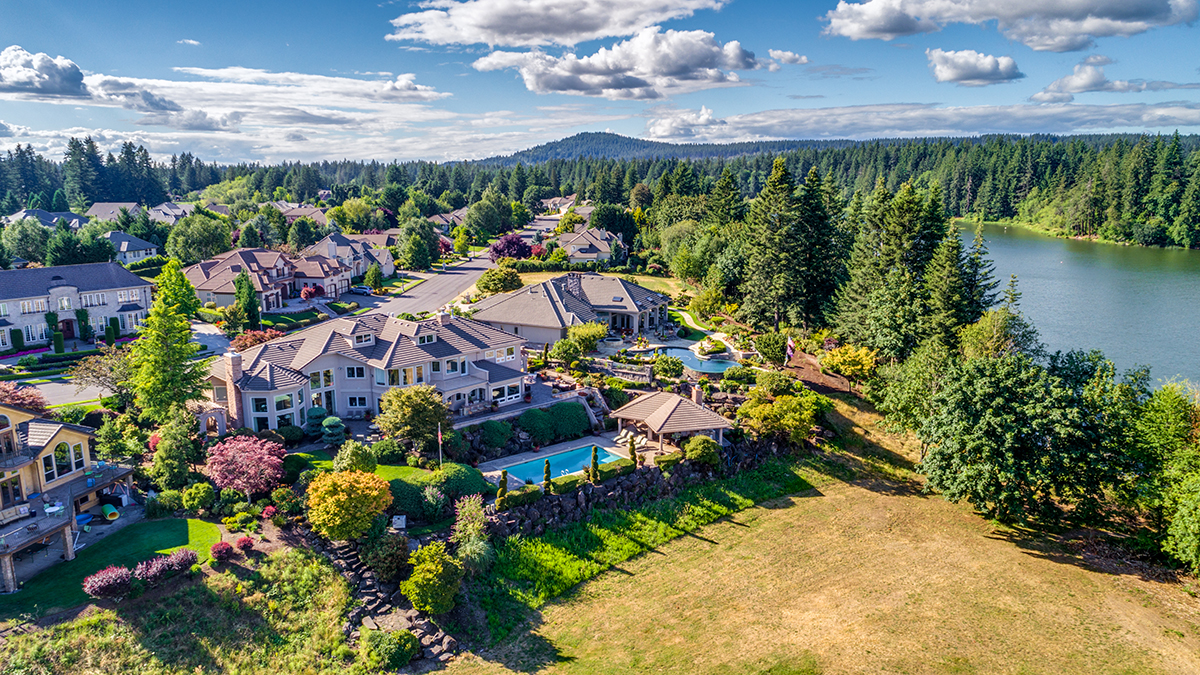
Camas is a small but rapidly growing city located east of Vancouver, Washington, and is part of the Portland metro area. The city is named after the camas plant, which was an important food item for Native Americans. Camas is known for its scenic surroundings, cozy residential neighborhoods, excellent schools, and proximity to major urban centers.
Highlights of Camas
- Housing and Neighborhoods: Camas is known for its residential neighborhoods that offer a high quality of life. Most homes are surrounded by natural landscapes such as forests, hills, and bodies of water. Housing in Camas ranges from more traditional homes to modern townhomes and luxury mansions with views of the Columbia River. Real estate prices here tend to be higher than the regional average, due to the high standard of living and excellent reputation of the schools. Popular residential neighborhoods include Prune Hill, Lacamas Shores, and Grass Valley.
- Education: Camas has one of the best school systems in Washington State. The Camas School District includes several highly rated schools such as Camas High School and Dorothy Fox Elementary School. Camas schools are known for their high level of academic excellence as well as their extensive extracurricular activities including sports, arts, and science.
- Economy and Jobs: Camas has a rich industrial history. The city was founded as a paper manufacturing center, and today it is still home to one of the largest paper mills in the region, owned by Georgia-Pacific. The city is also home to modern technology companies such as Fisher Investments and Sharp Electronics, creating jobs for highly skilled professionals. The proximity to Vancouver and Portland also allows Camas residents to easily commute to work in these major cities.
- Parks and Recreation: Camas is rich in natural beauty and parks. One of the most popular recreational destinations is Lacamas Lake Regional Park, where you can enjoy hiking scenic trails, fishing, kayaking, and picnicking. Other popular parks include Heritage Park and Crown Park. Camas is also known for its green streets and many community events, such as the annual Camas Days festival.
- Stores and Restaurants: The historic downtown Camas attracts residents and tourists alike with its cozy cafes, restaurants, and boutiques. The main street, Northeast 4th Avenue, is known for its local stores and restaurants where you can enjoy local cuisine. It also hosts monthly events such as First Fridays, when the streets are filled with musicians and artists.
- Community and Safety: Camas is a friendly and close-knit community where residents are actively involved. Family traditions and a safe environment for raising children are highly valued here. The city is also known for its active participation in environmental initiatives and support of healthy lifestyles.
- Transportation Accessibility: Camas is conveniently located near major highways, allowing residents to commute quickly to Vancouver and Portland. Major roadways include SR-14 and I-205, which provide convenient connections to major cities. Despite its small size, Camas has a good transportation infrastructure, including bus routes, making getting around the city and region comfortable.
Life in Camas
Life in Camas combines the tranquility of a small town with the conveniences of modern infrastructures. The city offers a high standard of living, quality education and access to natural attractions. Camas is suitable for families with children as well as professionals who appreciate comfort and natural beauty.
Why is Vancouver, WA attractive for relocation?
Vancouver is appealing because of its proximity to Portland, but it also offers a quieter and more comfortable lifestyle. Its accessibility to nature and variety of work and recreational opportunities make it an ideal location for families, young professionals, and retirees. Living in Vancouver allows you to enjoy all the benefits of both the big city and the countryside, making it a popular destination for relocation.
We are ready to help you with your relocation
If you’re planning a move to Vancouver, our moving company is ready to take care of the process. We can help you with packing, transportation, and disassembly to make your move as comfortable and stress-free as possible. No matter which Vancouver neighborhood you are planning to move to, we guarantee quality and reliable service.
Contact us in any way:
Telephone: (888) 282-6940
